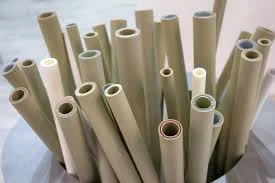
-
 Afrikaans
Afrikaans -
 Albanian
Albanian -
 Amharic
Amharic -
 Arabic
Arabic -
 Armenian
Armenian -
 Azerbaijani
Azerbaijani -
 Basque
Basque -
 Belarusian
Belarusian -
 Bengali
Bengali -
 Bosnian
Bosnian -
 Bulgarian
Bulgarian -
 Catalan
Catalan -
 Cebuano
Cebuano -
 China
China -
 China (Taiwan)
China (Taiwan) -
 Corsican
Corsican -
 Croatian
Croatian -
 Czech
Czech -
 Danish
Danish -
 Dutch
Dutch -
 English
English -
 Esperanto
Esperanto -
 Estonian
Estonian -
 Finnish
Finnish -
 French
French -
 Frisian
Frisian -
 Galician
Galician -
 Georgian
Georgian -
 German
German -
 Greek
Greek -
 Gujarati
Gujarati -
 Haitian Creole
Haitian Creole -
 hausa
hausa -
 hawaiian
hawaiian -
 Hebrew
Hebrew -
 Hindi
Hindi -
 Miao
Miao -
 Hungarian
Hungarian -
 Icelandic
Icelandic -
 igbo
igbo -
 Indonesian
Indonesian -
 irish
irish -
 Italian
Italian -
 Japanese
Japanese -
 Javanese
Javanese -
 Kannada
Kannada -
 kazakh
kazakh -
 Khmer
Khmer -
 Rwandese
Rwandese -
 Korean
Korean -
 Kurdish
Kurdish -
 Kyrgyz
Kyrgyz -
 Lao
Lao -
 Latin
Latin -
 Latvian
Latvian -
 Lithuanian
Lithuanian -
 Luxembourgish
Luxembourgish -
 Macedonian
Macedonian -
 Malgashi
Malgashi -
 Malay
Malay -
 Malayalam
Malayalam -
 Maltese
Maltese -
 Maori
Maori -
 Marathi
Marathi -
 Mongolian
Mongolian -
 Myanmar
Myanmar -
 Nepali
Nepali -
 Norwegian
Norwegian -
 Norwegian
Norwegian -
 Occitan
Occitan -
 Pashto
Pashto -
 Persian
Persian -
 Polish
Polish -
 Portuguese
Portuguese -
 Punjabi
Punjabi -
 Romanian
Romanian -
 Russian
Russian -
 Samoan
Samoan -
 Scottish Gaelic
Scottish Gaelic -
 Serbian
Serbian -
 Sesotho
Sesotho -
 Shona
Shona -
 Sindhi
Sindhi -
 Sinhala
Sinhala -
 Slovak
Slovak -
 Slovenian
Slovenian -
 Somali
Somali -
 Spanish
Spanish -
 Sundanese
Sundanese -
 Swahili
Swahili -
 Swedish
Swedish -
 Tagalog
Tagalog -
 Tajik
Tajik -
 Tamil
Tamil -
 Tatar
Tatar -
 Telugu
Telugu -
 Thai
Thai -
 Turkish
Turkish -
 Turkmen
Turkmen -
 Ukrainian
Ukrainian -
 Urdu
Urdu -
 Uighur
Uighur -
 Uzbek
Uzbek -
 Vietnamese
Vietnamese -
 Welsh
Welsh -
 Bantu
Bantu -
 Yiddish
Yiddish -
 Yoruba
Yoruba -
 Zulu
Zulu
High-Quality Fiberglass Sand Pipes for Durable and Efficient Solutions
Understanding Fiberglass Sand Pipes Advantages and Applications
Fiberglass sand pipes are an innovative solution in the field of piping systems, offering unique properties that make them ideal for various applications, particularly in industries dealing with sand and abrasive materials. Made from composite materials primarily comprising glass fibers and resin, these pipes boast high strength, lightweight characteristics, and exceptional resistance to corrosion, making them a popular choice in modern engineering.
Composition and Manufacturing Process
The manufacturing of fiberglass sand pipes involves a meticulous process that combines resin with glass fibers to create a composite material. This material is then molded into the desired pipe shape, often using techniques such as filament winding or resin transfer molding. The result is a product that is not only robust but also has a low coefficient of thermal expansion, allowing it to maintain its integrity under various temperature conditions.
Advantages of Fiberglass Sand Pipes
1. Corrosion Resistance One of the most significant advantages of fiberglass sand pipes is their resistance to corrosion. Unlike traditional metal pipes, which can be prone to rust and chemical degradation, fiberglass pipes remain unaffected by most corrosive substances encountered in sand transportation.
2. Lightweight The lightweight nature of fiberglass pipes simplifies installation processes. They require less labor and equipment to handle compared to heavier materials, which not only saves costs but also reduces the risk of injury during installation.
3. Durability With high tensile strength, fiberglass sand pipes are durable and can withstand the impact of abrasive materials. This longevity reduces the need for frequent replacements, leading to lower long-term maintenance costs.
4. Flexibility in Design Fiberglass pipes can be manufactured in various sizes and configurations, allowing for customization to fit specific project requirements. This flexibility makes them suitable for a diverse range of applications.
fiberglass sand pipe

5. Low Friction The smooth internal surface of fiberglass pipes reduces friction, which enhances the efficiency of material flow. This is particularly beneficial in applications where sand or other granular materials are being transported.
Applications of Fiberglass Sand Pipes
Fiberglass sand pipes are commonly used in several industries, including
- Construction In construction projects, these pipes are ideal for transporting aggregates and sand for concrete mixing. Their durability ensures that they can handle the stresses associated with heavy materials.
- Mining and Mineral Processing The mining industry often relies on fiberglass pipes for transporting ores and sand, as these pipes resist the harsh environments often encountered in mining operations.
- Waste Management Due to their corrosion resistance, fiberglass sand pipes are also used in waste management systems, handling abrasive and corrosive waste materials efficiently.
- Irrigation In agricultural applications, these pipes can be utilized for distributing water and fertilizers, particularly in areas where chemical fertilizers might corrode traditional piping solutions.
Conclusion
The adoption of fiberglass sand pipes represents a significant advancement in piping technology. Their unique properties and advantages make them an ideal choice for a variety of applications, particularly in industries dealing with abrasive materials. As technology continues to develop, the demand for these efficient and durable piping solutions is likely to grow, further solidifying their role in modern infrastructure.









